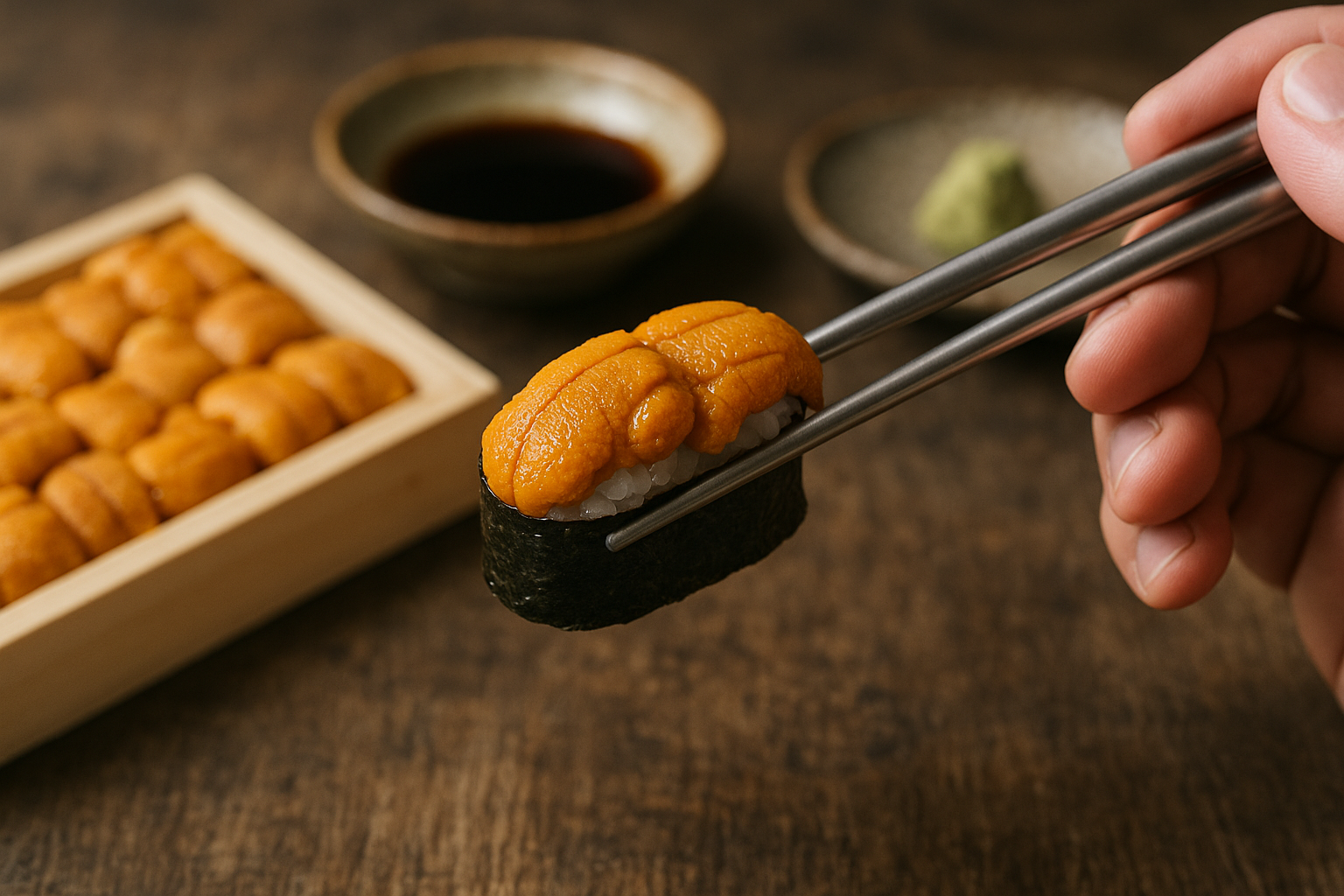A Lesson in Curiosity and Courage from the Sea
There are moments in life when something unfamiliar—maybe even intimidating—calls out to you. Sometimes it’s a place, a person, or a dish. For me, it was a small orange tongue of ocean flesh that changed my understanding of food.
It happened on a rainy afternoon in Kyoto. I was sitting in a modest sushi-ya recommended by a friend who swore by its simplicity. The chef, a stern man with gentle hands, placed a gunkan-maki in front of me. Atop the seaweed-wrapped rice sat a golden mound of something soft, briny, and undeniably foreign-looking. “Uni,” he said. Sea urchin. I’d heard of it before, but never dared to try.
I hesitated.
Growing up, seafood meant fried fish or maybe grilled squid during coastal vacations. Raw sea urchin? That belonged in the realm of daring gourmands, not people like me. But something in that moment told me: just say yes. I closed my eyes and took a bite.
That’s when everything changed.
Unlocking Flavor, Unlocking Stories
The texture was creamy, almost custard-like. The flavor? Oceanic but delicate, like a whisper of the sea rather than a shout. There were hints of sweetness and an earthy depth I couldn’t place—something primal, almost emotional. It wasn’t just food. It was a memory, it was a mystery, it was discovery.
That experience triggered a quiet obsession. When I returned home, I read every article I could find. That’s when I stumbled across an essential guide to uni, which finally helped me make sense of what I had tasted. I learned that not all uni is created equal: the buttery sweetness of Japanese Hokkaido uni differs from the bold minerality of West Coast uni. The guide even explained how to handle it—cold, never frozen; how to store it, and how best to enjoy it, whether atop sushi rice or mixed gently into pasta.
The more I read, the more I realized: uni isn’t just an ingredient. It’s a portal to understanding how geography, culture, and craftsmanship come together to shape taste.
Beyond the Palate: The Emotional Journey of Uni
What makes uni so profound isn’t only its flavor. It’s the emotional reaction it evokes. For some, the first taste is overwhelming or confusing. For others, it’s a revelation. That unpredictability—how it refuses to fit into neat flavor categories—is part of its charm.
I once shared a tray of uni with a friend who had never tried it before. She took a small spoonful and paused. “It’s… soft,” she said, “like the sea is hugging my tongue.” I laughed, but I knew exactly what she meant. There’s a vulnerable intimacy to uni that’s hard to explain, but unmistakable when you feel it.
As someone who often writes about identity and belonging, uni struck me as a metaphor. It doesn’t try to please everyone. It exists fully in its own nature—bold, raw, and unfiltered. And yet, in the right setting, it becomes unforgettable.
When Food Becomes Memory
I remember my second time tasting uni as vividly as the first. It was during a late-night dinner in Brooklyn, at a tiny izakaya tucked under the subway line. The chef, a second-generation Japanese-American, served uni atop warm soba noodles, garnished with yuzu zest. The dish was comforting, but also daring—East meeting West in a bowl. It tasted like homes I’ve never lived in but somehow still miss.
I asked the chef where he sourced the uni. He said he trusted only a few suppliers who could deliver it fresh, firm, and vibrant. “If it smells too much like the sea, send it back,” he said. “Uni should whisper, not scream.” That line stuck with me. It reminded me of a truth I often return to in writing and in life: subtlety has power.
Learning to Taste Slowly
The journey from curiosity to craving doesn’t happen overnight. Uni teaches patience. It asks you to taste slowly, to explore texture, to trust your instincts. It’s not for everyone, and that’s okay. But if you’re even a little bit curious—if something in you sparks at the idea of tasting the sea’s secret—then take the leap.
The second time I revisited the essential guide to uni, I noticed how much more I could appreciate. The descriptions of different grades, the pairing suggestions, even the serving rituals—all of it deepened my respect for the ingredient. It wasn’t just about consumption; it was about care.
Final Thoughts: Try It Once, Feel It Forever
People often ask me, “Is it really worth trying?” I always say the same thing: try it once, and you’ll know.
Maybe you’ll recoil. Maybe you’ll fall in love. But either way, you’ll have gained something—courage, curiosity, or simply a new story to tell over dinner. In a world of predictable flavors and recycled experiences, uni remains one of the few things that still feels wild and alive.
In that way, it’s more than food. It’s a reminder that life still has the power to surprise us—if we let it.
